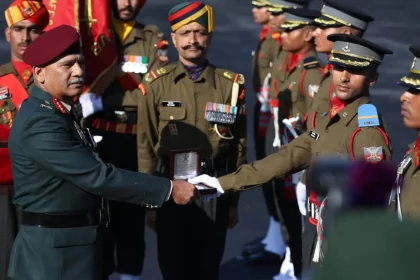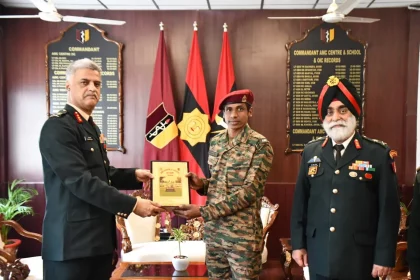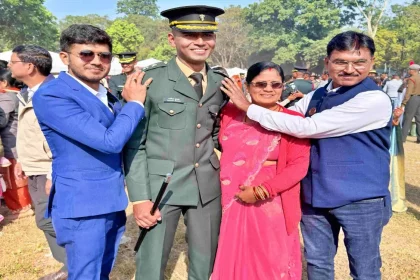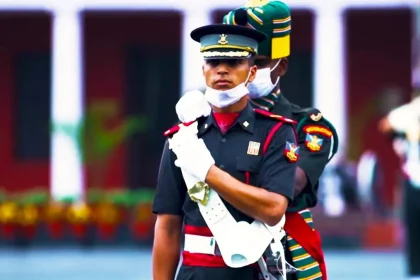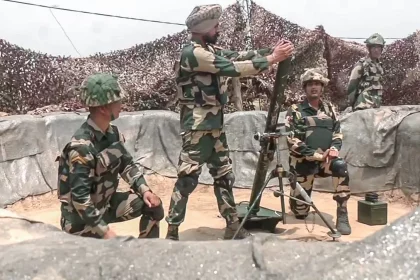TGC 143 Cut Off Marks Indian Army
TGC-143 cutoff marks announced for July 2026 course; check branch-wise percentages and SSB interview eligibility details.
Sepoy (Chef) Sonaram Hessa Wins 145 km All India Marathon in Lucknow
Army Medical Corps soldier showcases exceptional endurance by topping 145 km marathon among 250 runners in Lucknow.
Indian Military Academy Preserves Pistol of Pakistan’s Lt Gen AAK Niazi; Pakistani Flag Displayed Upside Down
Historic 1971 war relics at IMA Dehradun showcase Pakistan’s surrender to India and inspire future Indian Army officers.
One Brother Becomes Indian Army Lieutenant, Other Prepares for Defence Exams; Younger Sibling’s Success Inspires Elder
Bihar’s Koilwar celebrates as Ravneet Kumar is commissioned via TES-46, motivating his elder brother to pursue NDA dreams.
TGC 143 SSB Interview Dates Out Now
Date Selection Link Activated for Shortlisted Candidates; Interviews Scheduled for July 2026 Course.
Nine Jaish Terror Launch Pads Revived Across International Border After Operation Sindoor: BSF
BSF Tightens Counter-Infiltration Grid in Jammu Sector as JeM Regroups Near Border.

